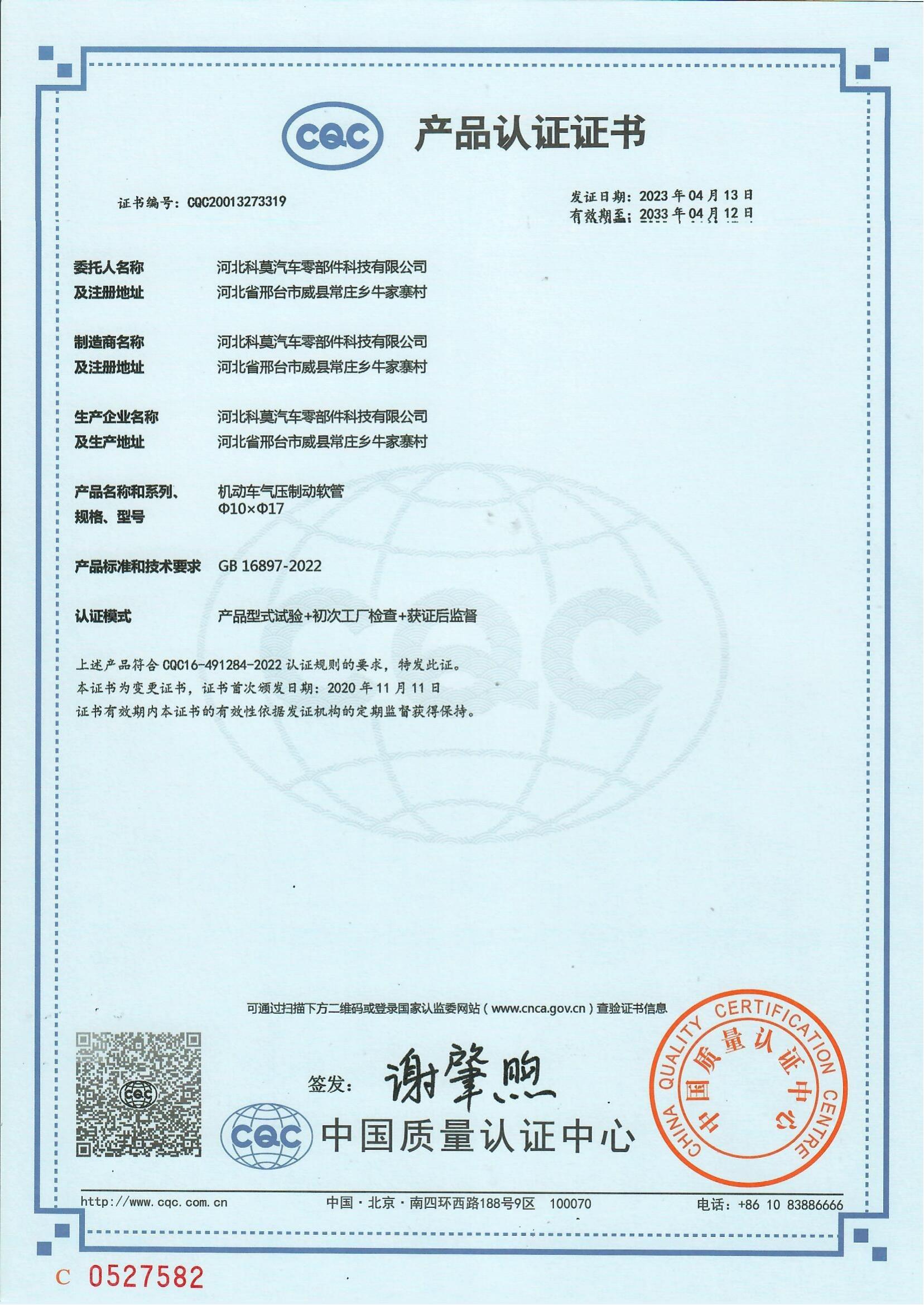fuel tube
Nov . 21, 2024 10:16 Back to list
fuel tube
Understanding Fuel Tubes Importance and Applications
Fuel tubes play a crucial role in the automotive and aerospace industries, serving as the primary conduit for transporting fuel from the tank to the engine. These components must be designed meticulously to ensure efficiency, safety, and reliability in numerous applications. In this article, we will explore the significance of fuel tubes, their construction materials, common issues, and maintenance practices.
The Significance of Fuel Tubes
Fuel tubes serve as necessary links in the fuel delivery system. Their purpose is to convey the fuel where it needs to go, whether it be in a car, an aircraft, or even military vehicles. Without well-functioning fuel tubes, the efficiency and performance of an engine can significantly decline. In automotive applications, fuel tubes facilitate the flow of gasoline, diesel, or alternative fuels, directly influencing fuel consumption, emissions, and overall vehicle performance.
In aviation, fuel tubes are even more critical. They not only need to transport fuel but must also withstand extreme environmental conditions—such as temperature fluctuations at high altitudes and the potential for fuel contamination. Consequently, fuel tubes in aircraft are often crafted with precision-engineered materials that ensure both strength and flexibility.
Construction Materials
The materials used in manufacturing fuel tubes are paramount to their performance. Commonly employed materials include rubber, aluminum, and various plastics, each offering unique advantages. For example, rubber tubes are flexible and can handle some movement without cracking. They are often used in lower-pressure applications.
Conversely, aluminum fuel tubes are lightweight and possess excellent corrosion resistance, making them ideal for high-pressure applications typically found in aviation
. Advanced engineering plastics, like nylon or PTFE (Teflon), are sometimes used for their durability and resistance to chemicals, contributing to better fuel system longevity.The choice of material affects not just performance but also fuel efficiency and emissions levels. Engineers must weigh the benefits of each option against potential drawbacks, such as heat resistance, pressure tolerance, and cost.
fuel tube

Common Issues
Despite their importance, fuel tubes are susceptible to various problems that can compromise an engine's performance. One common issue is fuel leakage. Over time, exposure to heat, vibrations, and chemicals can cause wear and tear, leading to cracks or ruptures in the tubing. Leaks can lead to not only loss of fuel but also safety hazards, including fire risks.
Another problem is clogging. Fuel tubes may accumulate dirt, debris, or deposits from the fuel itself, restricting flow and causing engine performance issues. This is particularly a concern in older vehicles or poorly maintained fuel systems. Regular inspections are crucial, as issues can often be resolved with simple cleaning or replacement.
Maintenance Practices
Routine maintenance is essential for prolonging the life of fuel tubes and ensuring optimal engine performance. Vehicle owners should have their fuel systems inspected regularly, particularly if they notice changes in engine behavior, such as sputtering or decreased acceleration.
Professional mechanics often recommend flushing the fuel system, including fuel lines, to remove any built-up contaminants. Additionally, checking the connections and seals at both ends of the fuel tube can help identify potential issues before they lead to severe problems.
For aircraft operators, regular maintenance checks are mandatory, often outlined in the aircraft's maintenance manual. These inspections cover fuel systems extensively, including the fuel tubes, to guarantee operational safety and compliance with aviation regulations.
Conclusion
In summary, fuel tubes, although often overlooked, are essential components in both automotive and aerospace applications. Their design and material make-up directly influence performance and safety. Regular maintenance and inspections are crucial to preventing issues like leaks and clogs, ensuring that vehicles and aircraft operate efficiently and safely. As technology evolves, so too will the materials and designs of fuel tubes, continuing to enhance their reliability in meeting the demands of modern transportation.
